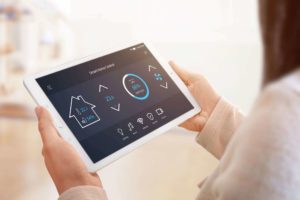Ahh the age-old question: “should i turn my ac off when i’m not home?“, well fun fact leaving your AC on while you are away can actually save you money! Not only will this action keep your house at a comfortable temperature, but it can prevent potential problems from occurring in your home. All you have to do is increase the temperature on your thermostat anywhere from seven to ten degrees. For someone who is away from their home for more than eight hours in a day, this can reduce your energy costs by up to 10 percent. It’s a win-win!
3 Reasons You Should NOT Turn Your A/C Units Off When You’re Gone
Even if you are leaving for a long vacation, or just trying to escape the Arizona heat, you shouldn’t turn your AC off. If you turn your A/C units off, your home becomes susceptible to reaching sweltering temperatures of 90+ degrees. The heat and humidity in Arizona can cause the following issues to occur in your home:
Reason #1: Overworking Your Refrigerator
If your home lacks proper insulation, your whole house can easily overheat during days with hot temperatures. This forces your refrigerator to work twice as hard and often causes breakdowns. Afterall, the last thing you want is to be left with an air conditioner that won’t work.
Reason #2: Damaging The Structure of Your Home
Arizona summers are not only notoriously hot but can reach high percentages of humidity. If your AC unit is turned off, the air in your home won’t circulate and the humidity will accrue into destruction. Doors will swell, mold will form, plaster will crack, and wood floors will buckle. These severe damages will end up costing you much more than your energy expenditure for leaving your AC unit running.
Reason #3: Spoiling Food
Just like it effects your home, the heat and humidity can affect the food in your home. Even the cork from a wine bottle can pop out due to high temperatures, leaving a mess for you when you return home.
What’s the Solution to Constantly Raising & Lowering Your Thermostat?

Constantly adjusting your thermostat when you leave you home may seem inconvenient. If this option does not suit your busy lifestyle, ACE Home Services has a solution for you: programmable thermostats.
Programmable thermostats do the work for you by automatically adjusting your thermostat’s settings to your personalized schedule. You will have complete control of your home’s comfort, even when you aren’t home!
For further information, speak with one of our experienced technicians and find the solution that is best for you and your home!
Still Wondering If You Should Turn Off AC When You’re Not Home? Ask the Pros!
Contact ACE Home Services with all of your questions regarding saving money and energy. We’re also happy to provide a free quote for installing a programmable thermostat in your home or place of work.
